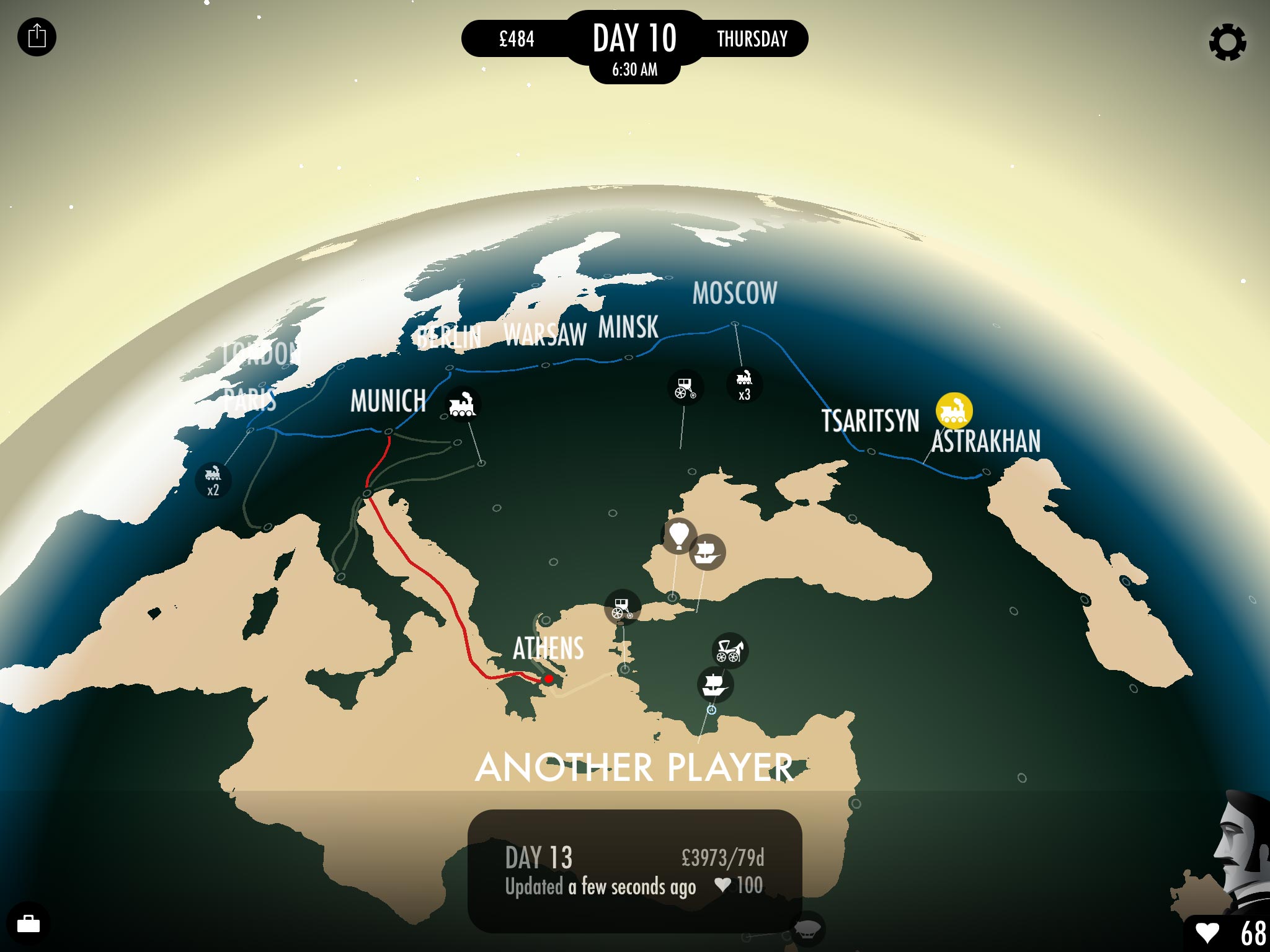The game “80 Days” offers a richly textured narrative experience characterized by its branching pathways and multifaceted endings, all of which are heavily influenced by your choices throughout the journey. Players navigate a world filled with diverse characters, evolving scenarios, and potential outcomes that reflect a variety of narrative arcs.
Key Outcomes:
1. Fogg’s Wager: The primary aim revolves around Fogg’s challenge to complete a circumnavigation of the globe in 80 days. The outcome of this wager can result in either a triumphant victory or a regrettable loss based on the player’s travel decisions and time management strategies.
2. Character Relationships: The dynamics between Fogg and Passepartout can lead to different endings. Players might find Fogg returning to London alone, or they may ensure he comes back accompanied by Passepartout, whose fate is also inextricably linked to the events encountered during travel.
3. Life and Death Scenarios: Critical choices during the game can lead to character deaths, including that of Passepartout or even Fogg himself. These decisions may arise from how players handle crises encountered on their travels, contact with political unrest, or important dialogue choices.
4. Romantic Elements: Entering into romantic relationships, particularly with characters such as Goland or Vitti Jokinen, introduces layers to the narrative that can shift the ending’s emotional tone. Choices made during romantic arcs can lead to poignant reunions or tragic separations, reflecting the complexities of relationships amid adventure.
5. Narrative Variations: Players can experience unique scenarios such as revolutionary movements in British India or discover plot twists involving characters with secretive motives, adding richness to the tale. For instance, encountering a woman posing as disabled may lead to moral dilemmas, further affecting the storyline and character fates.
Replayability is integral to “80 Days,” as the game’s design encourages players to explore various routes and decision-making strategies. Different choices lead to a spectrum of endings:
– Bad Endings: These can manifest when key characters meet untimely ends or fail significant missions, leading to narratives filled with despair or tragedy.
– Neutral and Positive Endings: Successfully managing resources, relationships, and timing can result in outcomes where characters survive and Fogg’s wager is either won or accepted in a reflective manner.
In conclusion, the unique architecture of choices in “80 Days” creates a compelling environment where every decision has repercussions. The intricate interplay of time, risk, romance, and character development not only makes for a thrilling journey but also invites multiple playthroughs to experience all the game has to offer. Whether players seek victory, romance, or a deep engagement with the narrative’s political undercurrents, “80 Days” guarantees a varied and immersive adventure that will resonate long after the final destination is reached.






Leave a Reply